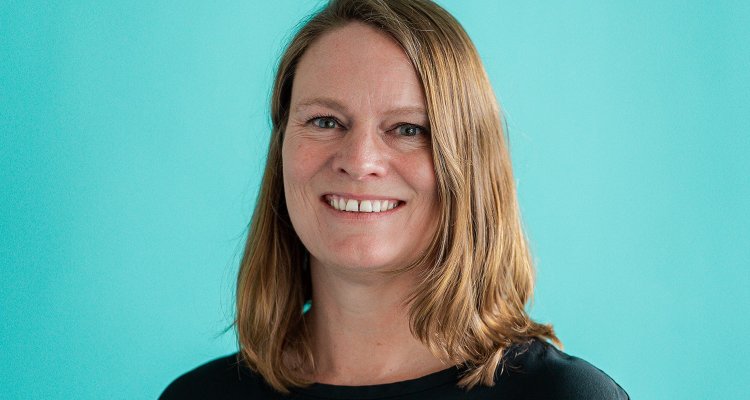
News
Inauguration Emely de Vet: “To find out what you do not know, you have to be willing to learn from each other”
The coronavirus measures threw a spanner in the works twice, but Emely de Vet will finally deliver her inaugural lecture on 19 May. As professor of Consumption and Healthy Lifestyle, she leads an interdisciplinary research group. Her mission: finding out why it is so difficult to quit an unhealthy lifestyle and to think of new methods that will lead to a healthy and sustainable lifestyle. We spoke with her shortly before her inaugural lecture.
Emely, you are sometimes called the “lifestyle professor”. Where does your scientific fascination with a healthy lifestyle originate?
“During my Health Sciences studies in Maastricht I discovered that human behaviour plays an important role in health problems, just as humans are the cause of every big problem in the world. I also discovered that many factors influence behaviour, which means that many people find it difficult to live in a healthy and sustainable way. As humans, we are part of a complex system that makes this behaviour convenient and sustains it. I have always felt very drawn to that complexity.”
In an interview with Psychologie Magazine you said: “You almost get the idea that you are a bad person if you do not follow the rules.” You think that only encouraging healthy behaviour does not work. Why not?
“Because it is far too simple to exclusively give the responsibility for a healthy lifestyle to consumers and patients. We will not resolve the obesity problem just by telling overweight people to lose weight, for example. In my inaugural lecture I explain that a big jumble of factors influences someone’s lifestyle. If, at the end of the month, it is always a question of whether you will be able to pay your energy bill, you may have to turn to the Voedselbank (food bank). What they offer there is almost always unhealthy. In any case, a diet in accordance with the food pyramid is more expensive than an unhealthy diet. The living environment also has an impact: in many places, fast food is being provided more often, especially in urban neighbourhoods where many people with lower incomes live. More and more fast food chains are also opening up around schools in these neighbourhoods. This exposes vulnerable people, who already have limited opportunity to live in a healthy way, to unhealthy food even more frequently. There are many other factors that influence a person's lifestyle, from the social network to which they belong to the limited availability of successful health interventions."
So to improve the health of our society, you need a combination of interventions?
Exactly. This is also the reason why my Consumption and Healthy Lifestyle chair group contains members from different disciplines, combining more fundamental lifestyle research with intervention research. As far as I know, this makes us unique in the world. The scientific world likes to focus on single behaviours or disciplines. The research groups working on sustainable behaviour are often different from those studying healthy behaviour, and medical science thinks about prevention in a different way than behavioural scientists do. As a scientist, I’ve never felt at home in this insular thinking. I am building my chair group around the questions that arise regarding lifestyle. To answer them, you need insights and methods from different fields. A tried and tested method in one field can inspire innovation in another field. From geographers and epidemiologists to sociologists and psychologists, we have all kinds of scientists on board. We recently received a large grant with which we will investigate, together with municipal councils, the interventions that can be introduced in the social domain that may have improve the lifestyle and health of people in debt assistance as a side effect. That requires different scientific expertise than that of people in my team who are working on personalised digital interventions in healthcare. That's what I like about interdisciplinary work: to find out what you don't know, you have to be willing to learn from each other.”
What do you want to achieve with your group in the coming years?
“First of all, I happen to be the one telling the story right now, but we really do it together as a team, in many different ways. In the years to come, I would like to see fundamental research in behavioural science enable us to learn more about the general processes that influence people's lifestyles. We want to then use that fundamental knowledge to create successful interventions. These challenges are not new, but our approach is different. Often, a new treatment or new healthy product is invented, and after that the conclusion is that it does not work. I would rather not put the person and their motivations at the centre, instead of the solution.”
Your point is clear: lifestyle change is difficult. Still, do you have any advice for anyone who wants to live in a healthier way?
“You do not need to make big changes all at once; small steps help too. Take the stairs, exchange your cola for a glass of tap water, eat brown bread instead of white, skip meat for a day. Every little bit helps.”